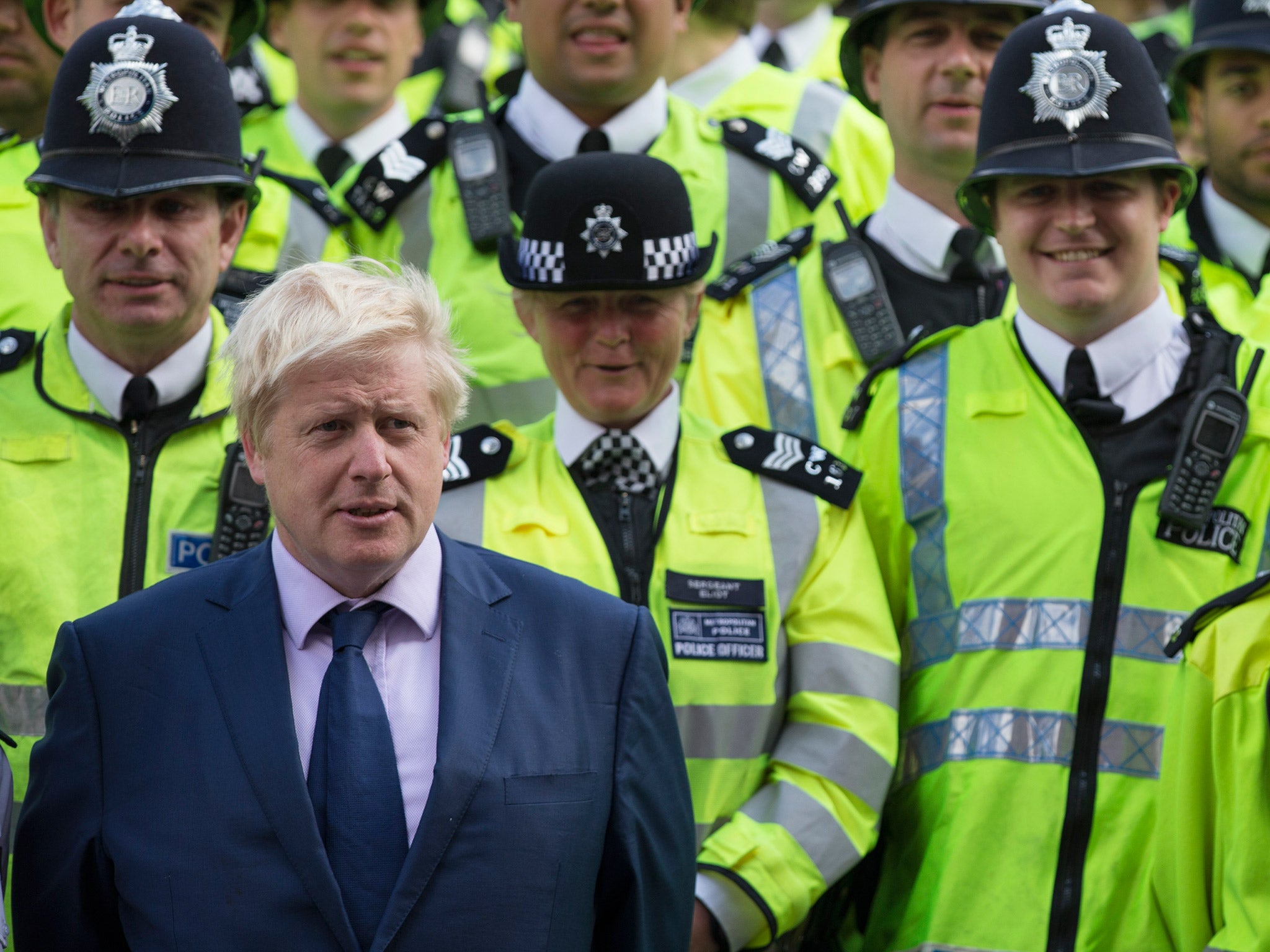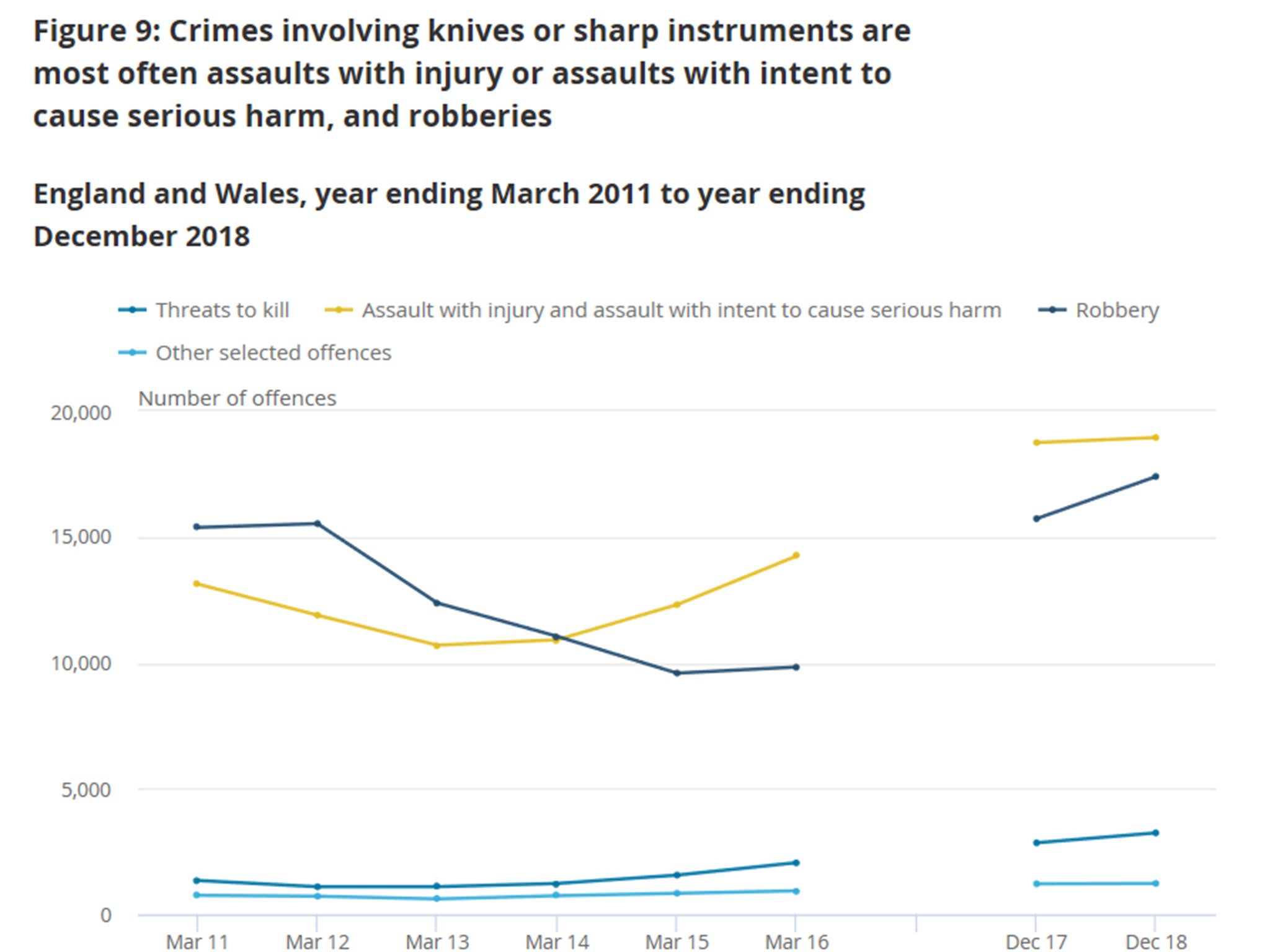Boris Johnson’s new policing minister admits ‘logistical challenges’ in recruiting 20,000 police officers
Questions mounting over whether there are enough instructors and police stations for drive after years of cuts

Your support helps us to tell the story
From reproductive rights to climate change to Big Tech, The Independent is on the ground when the story is developing. Whether it's investigating the financials of Elon Musk's pro-Trump PAC or producing our latest documentary, 'The A Word', which shines a light on the American women fighting for reproductive rights, we know how important it is to parse out the facts from the messaging.
At such a critical moment in US history, we need reporters on the ground. Your donation allows us to keep sending journalists to speak to both sides of the story.
The Independent is trusted by Americans across the entire political spectrum. And unlike many other quality news outlets, we choose not to lock Americans out of our reporting and analysis with paywalls. We believe quality journalism should be available to everyone, paid for by those who can afford it.
Your support makes all the difference.Doubts are mounting over Boris Johnson’s flagship pledge to recruit 20,000 police officers after his new policing minister admitted there were “logistical challenges” ahead.
Mr Johnson has said recruitment will start immediately to get more officers on the streets, amid public concern over rising violent crime.
Police leaders greeted the announcement warmly on principle, but there are questions over whether there are enough training instructors, stations and suitable candidates to meet the target in three years.
Asked how the extra officers would be housed following the closure of 600 police stations since 2010, the new policing minister admitted there were “logistical challenges”.
Kit Malthouse, who served as London’s deputy mayor for policing under Mr Johnson, insisted the target was “achievable” but added: “We will have to sit down and talk about the logistics.”
He would not comment on whether authorities would be forced to buy back property sold by police forces to offset government budget cuts, but told BBC Radio 4’s Today programme “locker space is key”.
“There has been reprovision elsewhere and we will have to understand what the estate looks like so that we can get the logistics right,” he added. “We do realise that this is a logistical challenge for all of us.”
Later on Friday, Mr Malthouse admitted that the government does not know exactly where funding for the new officers will come from, or how much they will cost.
“We still have to work out the exact number but we’re going into the spending review with the number of 20,000 as a fixed obligation and the finances will have to, kind of, back-fit,” he told the BBC’s Breakfast programme.
“The prime minister has said this is an absolute priority for him … and so the money will be earmarked as a priority through the Treasury and the new chancellor.”
Chief Constable Mike Cunningham, chief executive of the College of Policing, warned of a “wide variety of logistical challenges that come with the recruitment process”.
“Not just getting people through the doors, but the assessment process, the attraction, recruitment campaigns, the vetting, and then of course training people, making sure they are fit for the responsibilities that they have,” he told Today.
Mark Burns-Williamson, the former head of the Association of Police and Crime Commissioners, welcomed the “long overdue commitment” but added: “There are many questions and details still required as to how this is going to be funded and practically delivered locally.”
He said Mr Johnson’s announcement was “in effect a tacit admittance that the 20,000 officers nationally shouldn’t have been cut in the first place”, warning: “Recruiting so many officers over a short period of time will put a real strain on our training staff and facilities.”
Chief Constable Lee Freeman, of Humberside Police, pointed out that thousands of police staff had also been lost in cuts and “provide an equally key role in policing”.
Mr Johnson originally made the pledge during his successful campaign to succeed Theresa May, but was swiftly warned that keeping the public safe was “not just about police numbers”.
Sir Thomas Winsor, HM chief inspector of constabulary, said his plans were “not the most efficient and effective way of spending £1.1bn a year on policing” earlier this month, saying that the nature and complexity of crime had changed dramatically.
“You can’t recruit them all that quickly, they take 18 months to three years to train and not everyone who wants to be an officer can,” Sir Thomas told journalists at a briefing earlier this month. “You’ve got to invest to be more efficient in the necessary technology and ways of doing things, and that will cost money too.”
Mr Malthouse admitted that 20,000 officers would not be a “silver bullet” and new skills were required to combat cybercrime and online offences.
“We’re going to have to think very carefully about the mix of skills, equipment, techniques and capabilities in policing to address this overwhelming challenge,” he added.
Mr Johnson made the pledge in his first speech as prime minister, vowing outside 10 Downing Street that he would “make your streets safer”.
In parliament on Thursday, he said the new home secretary – Priti Patel – would head a policing board overseeing recruitment and hinted at changes to boost stop and search.
Critics attacked Mr Johnson’s description of “extra officers”, pointing out that budget cuts by his own party saw the loss of almost 22,000 police officers in England and Wales since 2010.
While the new prime minister has hailed his record on crime as mayor of London, the Metropolitan Police pegs 2014 as the start of rising violence, six years into Mr Johnson’s mayoralty.

Sajid Javid was the first Conservative home secretary to admit that police resources needed to be increased following cuts implemented by Ms May and defended by Amber Rudd.
Ms May accused the Police Federation, which represents rank and file officers, of “crying wolf” over the impact of budget reductions in 2015 and denied a link to rising violent crime earlier this year.
Labour’s shadow policing minister, Louise Haigh, said Mr Johnson “cannot be trusted” on policing.
“He served in a government which promised to protect the police, then voted for brutal real-terms cuts,” she added.
“As mayor of London, he vowed to recruit thousands of officers, but police numbers fell on his watch.
“The damage caused by these broken promises and brutal cuts cannot be reversed and the know-how that thousands of experienced bobbies brought to the job is gone for good – at a time when we’ve never needed it more.”
John Apter, chair of the Police Federation, said he would hold Mr Johnson to account on his pledge.
“It is both difficult and frustrating for hard-working police officers to come to terms with not being able to deliver the same level of service they were once able to,” he added. “Officers are struggling, both personally and professionally, because of the cuts to policing.”
Mr Apter said that as well as the new officers, the new spending review must ensure police can deal with new challenges.
Assistant Chief Constable Martin Hewitt, head of the National Police Chiefs’ Council, said a growth in numbers would ease pressure on officers, improve outcomes for victims and help reduce crime.
“We will work closely with the College of Policing and the government on the detail and practical implications of such a significant recruitment drive,” he added.
Join our commenting forum
Join thought-provoking conversations, follow other Independent readers and see their replies
Comments